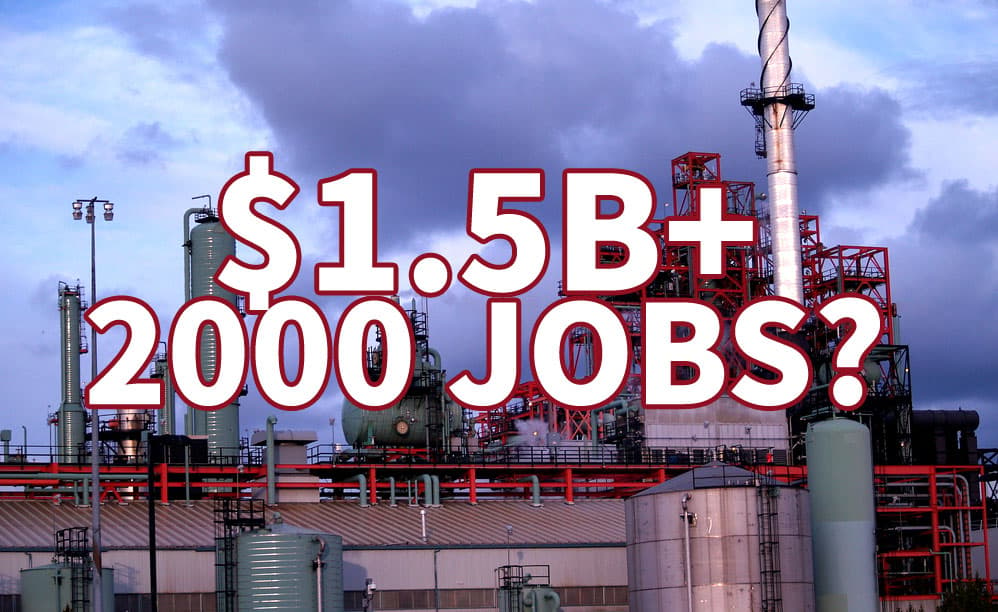Province says the project will spur the construction of refineries, upgraders and petrochemical facilities and create 2,000 jobs.
Alberta is working to encourage construction of a C$2 billion ($1.5 billion) partial-upgrading facility that would turn more of the province’s oilsands bitumen into higher-value products.
The facility, designed by Calgary-based Value Creation, would be located near Edmonton and process 77,500 barrels of diluted bitumen a day into products like medium synthetic crude and ultra-low sulfur diesel. The province is offering a C$440 million loan guarantee, and the project is seeking additional financing as it works toward a final investment decision this year.
The province’s support is part of about C$3 billion Alberta plans to invest to spur the construction of refineries, upgraders and petrochemical facilities to reap more value from its oil reserves. The plan, an idea that has been floated for more than a decade, also aims to alleviate the pipeline bottlenecks that have hammered local crude prices and prompted Premier Rachel Notley to mandate a province-wide oil production cut.
“We have to get off the rollercoaster,” Notley said at a recent press conference in Calgary, adding that the Value Creation facility would add 2,000 jobs. “We have to make our economy more resilient.”
Since partial upgrading would reduce or eliminate the need for adding condensate to make heavy oil-sands crude flow through pipelines, the project would help free up pipeline space in a region that struggles with getting its oil to refineries in the US and overseas. Currently, condensate represents about a third of volumes in conduits shipping Canadian heavy crude.
The upgrader would also allow Canadian companies to diversify the crudes they produce from just light and heavy oil to also more medium grades, Kevin Birn, IHS Markit’s director of North American crude oil markets, told Bloomberg in Calgary. This would make the industry “more robust to weather disruptions in the market,” he said.
A decade ago, oil-sands companies would build refinery-sized upgraders to convert heavy bitumen into higher-valued light oil that was seen as increasingly scarce. But costs for such plants soared just as the US fracking boom sent a surge of light oil onto the market, depressing prices for similar synthetic crude.
“The tight oil revolution wiped out” the rationale for fully upgrading bitumen, Birn said. “Now we are swimming in light oil.”
Notley said the province is working on C$20 billion in projects to help add value to Alberta’s crude.

